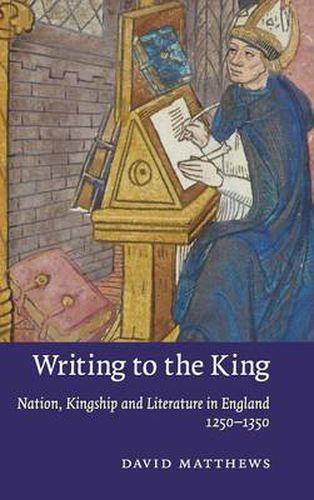Readings Newsletter
Become a Readings Member to make your shopping experience even easier.
Sign in or sign up for free!
You’re not far away from qualifying for FREE standard shipping within Australia
You’ve qualified for FREE standard shipping within Australia
The cart is loading…






In the century before Chaucer a new language of political critique emerged. In political verse of the period, composed in Anglo-Latin, Anglo-Norman, and Middle English, poets write as if addressing the king himself, drawing on their sense of the rights granted by Magna Carta. These apparent appeals to the sovereign increase with the development of parliament in the late thirteenth century and the emergence of the common petition, and become prominent, in an increasingly sophisticated literature, during the political crises of the early fourteenth century. However, very little of this writing was truly directed to the king. As David Matthews shows in this book, the form of address was a rhetorical stance revealing much about the position from which writers were composing, the audiences they wished to reach, and their construction of political and national subjects.
$9.00 standard shipping within Australia
FREE standard shipping within Australia for orders over $100.00
Express & International shipping calculated at checkout
In the century before Chaucer a new language of political critique emerged. In political verse of the period, composed in Anglo-Latin, Anglo-Norman, and Middle English, poets write as if addressing the king himself, drawing on their sense of the rights granted by Magna Carta. These apparent appeals to the sovereign increase with the development of parliament in the late thirteenth century and the emergence of the common petition, and become prominent, in an increasingly sophisticated literature, during the political crises of the early fourteenth century. However, very little of this writing was truly directed to the king. As David Matthews shows in this book, the form of address was a rhetorical stance revealing much about the position from which writers were composing, the audiences they wished to reach, and their construction of political and national subjects.